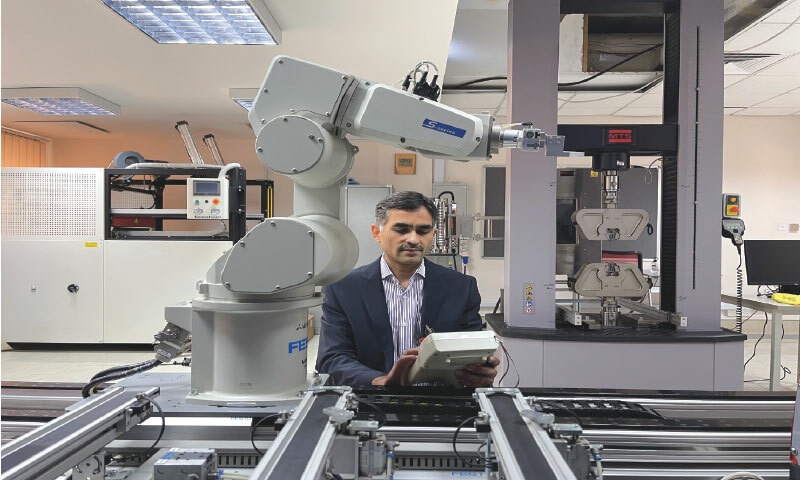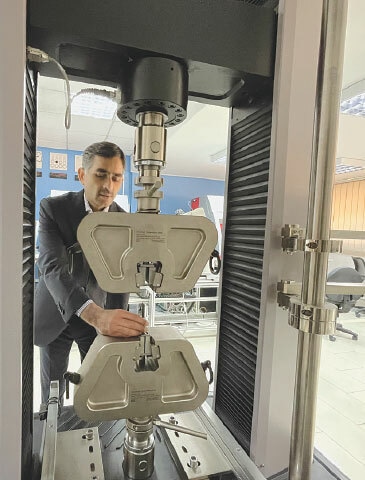Death anniversary of Dr. Annemarie Schimmel
Annemarie Schimmel was born on April 7, 1922 in Erfurt, Germany, as the only child of highly cultured middle-class parents, who raised her in an atmosphere saturated with literature and poetry.
Skipping two grades in secondary school, she began her studies at the University of Berlin in the fall of 1939 at the age of seventeen. Her most influential teacher was the inspiring polymath, Hans Heinrich Schaeder. He suggested that she study the Divan of Jalaluddin Rumi, and the poetry struck her like lightning. She intuitively grasped the ideas embodied in this poetry and never let go of it again.
In October 1941, at 19, she earned her doctorate with a dissertation on late medieval Egypt. Shortly thereafter, she was drafted by the Foreign Office and attached to a decoding unit. She continued to work on scholarly projects in her spare time, and on March 31, 1945 she submitted her Habilitationsschrift. However, the next day her decoding unit was put on trucks and evacuated, destination unknown. On April 20, the convoy encountered the advancing American army somewhere in Saxony; once captured, the whole group was sent to Marburg and interned there on May 8, 1945, the day the war ended. The internees soon founded a “camp university,” and Annemarie gave her first lectures on things Islamic sitting on the top of a double-decker bunk.
Fortunately, Annemarie had brought along a copy of her Habilitationsschrift and was able to do her Habilitation in Marburg. On January 12, 1946, she gave her inaugural lecture on “The Main Representatives of Islamic Mysticism” at the age of 23.
In 1951, she earned a second doctorate in the History of Religions awarded by the Faculty of Protestant Theology in Marburg, with a thesis on mystical love in Islam.
In the early fifties Annemarie made several trips to Turkey. In 1953, while she was in Ankara, she gave her first public lecture in Turkish; soon thereafter the University’s Faculty of Theology offered her the vacant chair of the History of Religion. The fact that she was a woman and a non-Muslim to boot played no role whatsoever. (In her autobiography Annemarie asks if in those years a German faculty of Protestant theology would have appointed a Muslim woman to a professorship!)
Living in Turkey for five years (1954-59) gave her “obsession” with Rumi, whose mausoleum in Konya she frequently visited, a definite boost. But her other favorite subject, the Indo-Muslim thinker and poet Muhammad Iqbal, also emerged in her writings during this time. At the urging of her Turkish friends she produced an annotated translation of Iqbal’s famous spiritual book, the Jawednama. This led to an invitation in 1958 to visit Pakistan that was the starting-point of a new research interest that ultimately brought her to Harvard.
In August of 1965, on her first visit to the US, attending the 11th Congress of the International Association for the History of Religions in Claremont, California, she was approached by Harvard’s Wilfred Cantwell Smith, who told her that substantial funds had been given to Harvard by the inventor of Minute Rice, Mr. Ozai-Durrani, to have two major Urdu poets, Mir and Ghalib, translated into poetic English. Of course, the position would consist of more than just this translation project. Would she be interested in coming to Harvard? She declined, claiming that as a non-specialist in Urdu she was ill prepared to do the job. But Smith and others at Harvard pursued her doggedly and finally convinced her.
In the spring of 1967 she started at Harvard as Lecturer on Indo-Muslim Culture, and in 1970 she was appointed full professor. She taught only in the spring term, but with a double load. Almost every year she traveled to Pakistan in the fall. She attained such legendary status there that a major boulevard was named after her in Lahore. Although she taught only during the spring term, her students were well looked after. They adored her, stood in awe of her, even feared her, as she was very demanding; but they also trusted her and asked for her counsel in personal matters. Her classes on Sufism were always well attended, and one of her courses metamorphosed into her most famous book, Mystical Dimensions of Islam. She was also a much sought-after lecturer, and her style of delivery was famous: she would clasp her purse with both hands, shut her eyes, and speak for exactly the amount of time allotted to her. She maintained that she could lecture without a manuscript in German, English and Turkish, or with a manuscript (and open eyes) in French, Arabic, Persian and Urdu.
During her academic life she was awarded an impressive number of honorary doctorates, as well as numerous prizes and medals. She published more than a hundred books in English and German, many of which were intended for the educated layman. Verse translations of Islamic poetry were her favorite pastime, in which she followed the model of her hero, the late Romantic poet and orientalist, Friedrich Rückert; at least six languages were involved.
In 1992 she retired from Harvard. Back in Bonn her life consisted of almost constant lecturing and writing. On October 15, 1995, she received the prestigious Peace Prize of the German Book-Trade Association to honor her achievements in generating East-West understanding; the President of Germany read the laudatio. This was in a way the ultimate public recognition of her life’s work, which may be subsumed under her favorite among Rückert’s sayings: “World-poetry is world-reconciliation.”
On January 26, 2003, Annemarie died of complications following surgery. She had no immediate living family, but is survived by a well-loved son of a cousin and his family, now in California and New Jersey, as well as a large number of friends, colleagues, students, and many Muslims of all walks of life, who will always remember this singular scholar and interpreter of the Muslim world with fondness and admiration.
















